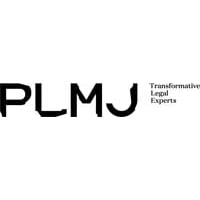

Head of legal - Portugal | CINTRA



Soraya Ouazad
Head of legal - Portugal | CINTRA
What are the most significant cases or transactions that your legal team has recently been involved in?
The team has been involved in M&A projects, more specifically in the divestment of mature assets which encompass the need to obtain the necessary consents from the grantor and the lenders, and in one particular case, even the consent of the bondholders. These are projects that we have only been able to close after signing the SPAs. We are also involved in major litigations and arbitrations. Along with these significant cases, the team handles the day-to-day operations of the company, such as contract drafting and negotiations, litigation, assisting in the relationship with stakeholders, dealing with all corporate matters concerning the group of companies, compliance, GDPR, training regarding legal matters, and all subjects related to employment, including the negotiation of collective bargaining agreements.
How important is choosing to work with external lawyers who align with your company’s values? Are you likely to reconsider what firms you work with based on this?
It is of the utmost importance to work with external lawyers that share our values, as such alignment is essential.
Looking forward, what technological advancements do you feel will impact the role of in-house legal teams in the future the most? Which have you found most useful in your legal team?
Technological advancements allow lawyers to search and to treat high amounts of data accurately.
Why are in-house lawyers well-placed to drive change within their organisations?
In-house lawyers understand the business, the internal clients’ needs and are used to being at the driver’s seat in all major legislative and regulatory changes, therefore we are well-placed to drive change.
In general, what would you like to see change about the external law firms you use?
I would like to see billing more aligned with the principles set by the Portuguese Bar Association, taking into consideration the difficulty of the matter and the results obtained, and less dependent exclusively on hours.
As we live in a fast-paced world today, what skills will a corporate legal team need to succeed in the modern in-house industry?
The teams do not need new or special skills to succeed in this fast-paced environment as the skills that define an excellent legal counsel remain the same: technical knowledge, communication, emotional intelligence and agility.
How do you suggest in-house lawyers build strong relationships with business partners?
In-house lawyers are business enablers that give advice, and such advice may or may not be followed by boards and managers. In-house lawyers take decisions within their scope and must avoid the temptation of taking business decisions. They need to listen to and understand the needs and concerns of their internal clients and build a trustful relationship as trust is essential.
The unusual business environment created by the pandemic has been swiftly followed by other shocks. Are you now putting more emphasis on preparing for the unforeseen and, if so, what does this entail?
We are paying more attention to force majeure and termination clauses, although we are aware that the perfect contract does not exist as it is always a work in progress.
What are some of the main legislative or regulatory changes that have impacted you?
GDPR regulation has had an impact, but it allowed us to allocate resources to an area that was already under our radar. Currently we are studying the impact that recent changes to the Labour Code may have on our activity.
"Soraya has been the Head of Cintra’s Portuguese legal team for over a decade, coordinating all legal affairs related to the several concessions and motorways operated by Cintra or its affiliates. She has strong track record in infrastructures and deep knowledge of the sector and legal context. Is highly recognised by the stakeholders for her vast experience and attention to detail. "